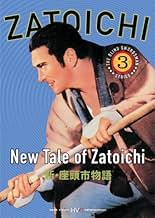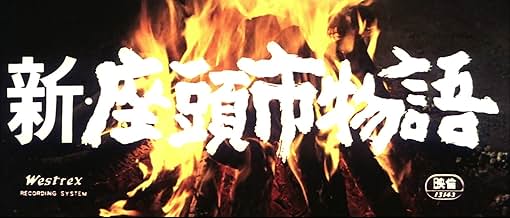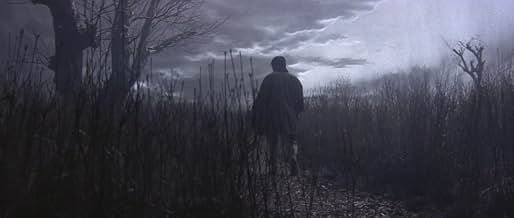Usually long film series see a gradual development or deconstruction of the main character simply because either the character changes or the environment does. Most often our heroes are marched through various situations, numerous more often than not, and only when the ticket sales start to diminish there's usually a twist in the hero's personality or identity.
There's a third way, too. It has to do with the filmic problem of presentation, and usually this happens when the film is made during a historically significant technological paradigm shift. Sound was one, and nowadays it's most likely 3D, although more because of the commercial powers behind the technology. In the 1960s it was colour.
With Zatōichi its introduction in this third film becomes deliciously ironic, since in the first two films there have been several japes different people play on Ichi because he's blind. In those moments we, the audience, have been able to see it with them, making us part of the bad guys' gang as well. This cinematically fruitful branch of narrative play extends here to the very form of the film itself – its colour.
As a colour film this a very beautiful one. It's more inclined towards the subdued than the showy, and that's commendable. It's also more interested in characterization, really casting the second film in more realistic light as an afterthought. What's so striking is that while it's customary to have the hero denounce his craft and want to lead a normal life, it's usually fluff that lasts only a while. Not so here: Ichi really wants to quit, and promises to. It's made feasible, it makes sense. It feels like the right thing to do. But still we know that won't happen, that the torment will continue, and in part that's why we cheer for Ichi, that he might go on. They manage to make Ichi's torment our own. It really is expertly handled.
Among the best in the series so far.



























